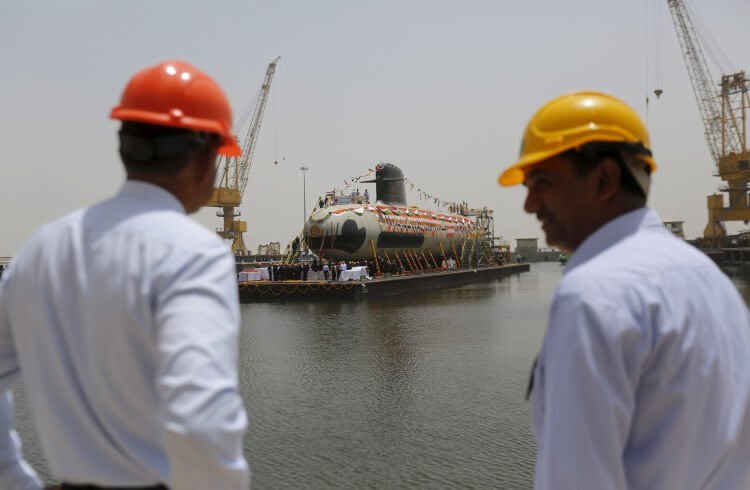The Scorpene data leak is perhaps the biggest scandal involving a defence deal since the Narendra Modi government came into power due to the allegedly highly sensitive nature of the data leaked. Ever since The Australian newspaper published more than 22,000 pages worth of hypersensitive data about India’s Scorpene class stealth submarines, statements have flown in from all quarters.
Here is what everyone is saying about the leak.
The Official Ministry Line / Defence Minister Manohar Parrikar
For Parrikar, this may well be the biggest controversy during his tenure. But the Minister has kept his cool, and maintained that that the leak resulted from hacking by outside forces. Parrikar said:
“What I understand is that there has been a hacking… the first important thing is to identify if it is related to us”
“I have asked the Navy chief to study the entire issue about what has been leaked, what is there about us and to what extent. It came to my knowledge at about 12 AM. What I understand is there is a hacking. So we will find out all this,”
The Navy Statement / The Indian Navy
Here is what the the Indian Navy had to say in it’s official statement on the leak:
“The available information is being examined at Integrated Headquarters, Ministry of Defence (Navy) and an analysis is being carried out by the concerned specialists.”
“It appears that the source of leak is from overseas and not in India,”
Sources within the navy also claim that the leak did not contain the configurations used in the Indian submarines, and that the data leaked would not amount to any substantial damage, though analysts have disagreed.

From The Docks / The Mazagon Dock Limited
The Mazagon Dock Limited (MDL), where the Scorpene submarines are being built, said the data leak did not take place from its end and that there were stringent norms at MDL on data security.
An MDL official told PTI:
“We are helping Navy in the probe. We are certain the data leak was not from our side, — It needs to be verified if the leaked documents are authentic,”
DCNS – the submarine maker

French naval contractor DCNS, which was building the Scorpene submarines for the Indian Navy said in a statement that it may have been the victim of ‘economic warfare’ from competitors, and that ‘corporate espionage’ cannot be ruled as a possible source of the leak, Reuters reported.
DCNS has provided the technology for the Rs 23,562-crore project, after it recently won the contract for building Australian submarines, while beating Germany and Japan to it. In an official statement, DCNS said:
“As a serious matter pertaining to the Indian Scorpene program, French national authorities for Defence security will formally investigate and determine the exact nature of the leaked documents.”
What ‘The Australian’ has to say
According to reports in The Australian, DCNS has implied that the leak took place in India, though the paper reports that the leak probably occurred in France in 2011, when the information was removed by a former French naval officer, who was working as a contractor with DCNS at the time.
What the French are saying / French Official Line
France has said it will cooperate with India in the investigation into the matter. French Ambassador Alexander Zeigler told PTI:
“The French authorities are taking the matter very very seriously. We are working on it very seriously with DCNS, with the (unclear). And we are trying to access the extent, the nature, the sensitivity of information of.. may have been leaked. And we will work in this very very close cooperation and full transparency with the Indian authorities,”

The data that was leaked contained sensitive information about the navigation and sonar systems of the ‘cutting-edge’ new submarines, (a total of six Scorpene submarines are scheduled to be added to the fledgling Indian fleet) as well as other details. The leak poses a serious question to India’s maritime security strategies, and also raises a serious question over the defence of strategic information regarding the country’s national security.
(Inputs From PTI)
Feature Image Source: Reuters

















